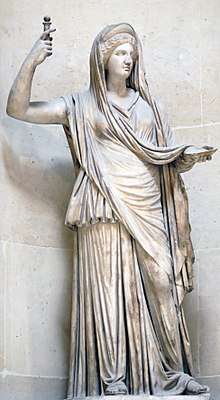Hero
English
Etymology
From Ancient Greek Ἡρώ (Hērṓ).
Proper noun
Hero
- (Greek mythology) Any of a number of legendary men and women, including the priestess loved by Leander.
- (rare) A female given name of English-speakers.
- 1598–1599 (first performance), William Shakespeare, “Much Adoe about Nothing”, in Mr. William Shakespeares Comedies, Histories, & Tragedies: Published According to the True Originall Copies (First Folio), London: Printed by Isaac Iaggard, and Ed[ward] Blount, published 1623, OCLC 606515358, [Act I, (please specify the scene number in lowercase Roman numerals)]:,Scene 1:
- You hear, Count Claudio: I can be secret as a dumb man; I would have you think so; but on my allegiance mark you this, on my allegiance: he is in love. With who? now that is your Grace's part. Mark how short his answer is: with Hero, Leonato's short daughter.
-
This article is issued from
Wiktionary.
The text is licensed under Creative
Commons - Attribution - Sharealike.
Additional terms may apply for the media files.
